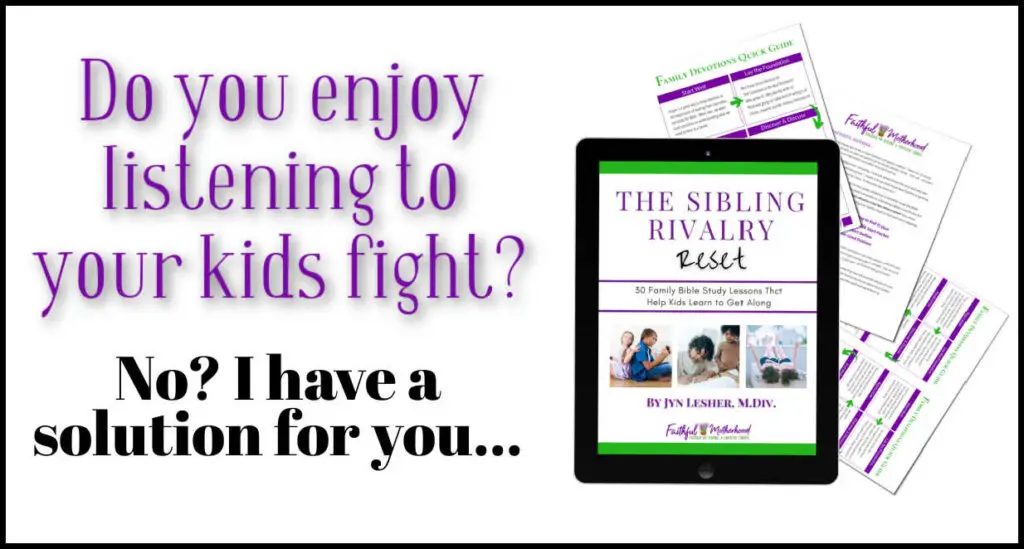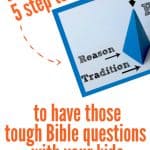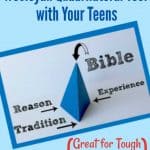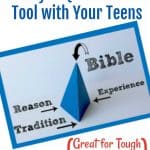It is hard to have tough conversations without emotions shutting down the discussion. The Wesleyan Quadrilateral can transform your conversations to go deeper in pursuit of a biblical worldview.
Our goal as parents is not to ensure that our children have the right answers to biblical questions; instead, wise parents desire above all biblical thinking and discernment.
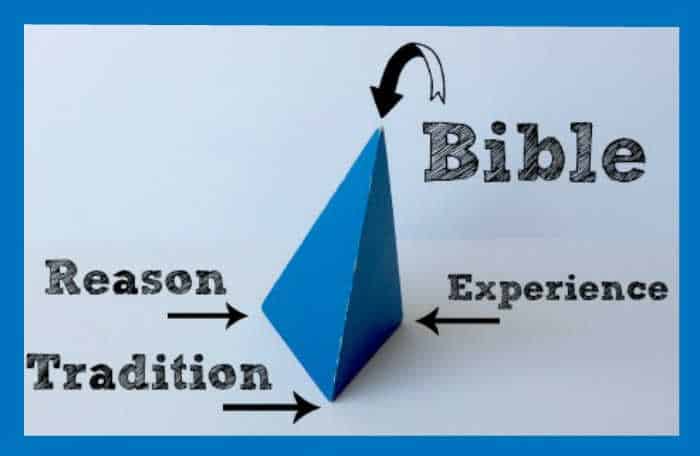
We cannot prepare our children for all the challenges that they will face, but we can help train them to think about their choices, their views, and their actions through a biblical lens. Use Wesleyan quadrilateral as a tool to help your child think critically about different sources of authority & empower them to make wiser decisions.
How do we go about deciding if is something is right or wrong? What criteria do we use to compare different ideas and determine which one we will believe?
How do we look at a problem or challenge and decide from all of the opinions out there which understanding to have or which path to take?
How to Use the Wesleyan Quadrilateral with Your Kids
There is a fantastic tool available to you to help you think critically about ideas and to equip you to lead your children in discernment as well. This tool is popularly known as the Wesleyan Quadrilateral. (Although attributed to John Wesley, it was the work of Albert Outler.)
Our culture is one where increasingly people lack discernment. We may believe passionately in a position or an argument, but we don’t know why.
We lack the tools to step back and critically look at our opinions and the sources of authority we used to make to form them. The Wesleyan Quadrilateral gives a way to get that conversation started.

The Four-Fold Sections of the Wesleyan Quadrilateral
The Quadrilateral has four sections: scripture, tradition, reason, and personal experience. Each of these sections represents a different source of authority.
We are influenced and shaped by the thoughts and ideas of the world around us. Often those ideas are competing, and we have to decide to whom we are going to listen.
We have to discern whose voice or position hold more weight for us – has more authority. Admittedly, we listen to the advice of some friends more than other friends based off of their track record.

We often choose to favor one news outlet over another because we perceive that one is more truthful.
The Quadrilateral groups the influences on our decisions into four main categories. By identifying how our opinion is shaped by these four areas, we can then discern if we need to change or modify our view.
While there are four areas, the quadrilateral is not to be viewed as an equilateral in which all sectors have equal weight. In contrast, scripture should be the foundation for our discernment and should be the lenses through which we look at tradition, reason, and finally – experience.
Step #2 – Wesleyan Quadrilateral Reason
Reason is the space where we look at the influence of science and rational thought. The skills of logical reasoning and the results of sound scientific data are evaluated.
Not all information put forth as scientific fact is in fact, true. Scientists are sinners, just like everyone else. Sometimes the results of scientific endeavor are biased and influenced by what we want the outcome to be for personal, economic, or philosophical reasons.

We sadly live in a world in which people are willing to manipulate data to meet their agenda goals. True scientific pursuit should pursue Truth without bias or an agenda. The history of science shows that this has always been a struggle.
Therefore, we cannot assume that all science is true, but we need to evaluate the finding ourselves to check for bias. The study of logic helps us to evaluate arguments and the fallacies that we are all prone to using.
Step #3 – Wesleyan Quadrilateral Tradition
Tradition is a powerful influence on our worldview and behavior. For example, why do we celebrate Christmas? An annual celebration of Christ’s birth is recorded nowhere in scripture, and yet, we celebrate it every year.
To implement the calls of Scripture, the Church has traditions and systems that flesh out those calls and equip Christians to fulfill those commands. At least, that is the goal.

Sometimes, we end up holding onto a tradition that no longer meets those needs. Or, we lift up the tradition at the expense of scripture.
Tradition can be used to give weight to those practices & beliefs that have stood the test of time. Yet, it also can be the area where we give preference to the earliest traditions of the Church.
The closeness to Christ assumes more authenticity & less time for sin to corrupt those practices.
Wesleyan Quadrilateral -Experience
The truth of Scripture is “vivified in personal experience” according to the Book of Disciple for the United Methodists. His personal revival experience profoundly impacted John Wesley.
The discussion of theology and its application is not just a head decision but one that is also a matter of the heart. A converted heart should recognize the truth.

Personal experience was not intended to be equal to scripture. The reality is that we are sinners. We tend to go along with the newest trends in society as to what is right and wrong.
In our current culture, the truth is in the eye of the beholder. One’s personal experience is elevated to the highest authority. This is not compatible with a Biblical worldview.
We are sinners; we need God to show us Truth. The first letter to the church at Corinth tells us that “For now we see through a glass, darkly; but then face to face: now I know in part; but then shall I know even as also I am known.” (1 Corinthians 13:12).
If experience is allowed equal standing, then there is no Truth anymore.

Scripture, then, is the starting point and foundation for all truth. Those that seek to undermine the very notion of Truth, inevitably disregard the authority of the Bible.
The Bible is the Truth by which all other potential truths are tested. Looking for a great, concise article about the authority of the Bible, you can find one at gotquestions.org.
“But as for you, continue in what you have learned and have firmly believed, knowing from whom you learned it and how from childhood you have been acquainted with the sacred writings, which are able to make you wise for salvation through faith in Christ Jesus. All Scripture is breathed out by God and profitable for teaching, for reproof, for correction, and for training in righteousness, that the man of God[ may be complete, equipped for every good work.” 2 Timothy 3:14-17
Wesleyan Quadrilateral Example – Abortion
Now that we know the parts, how do you use them? Let’s put them to work looking at the issue of abortion.
Scripture Example
The first step would be to look up abortion in a concordance. You will find that the word does not appear in scripture.
Does this mean the Bible has nothing to say? No! Find an excellent summary of the relevant Bible passages to this discussion at gotquestions.org.
Tradition Example
What is the church’s historical teaching been on abortion?
- Check out the Gospel Coalition here.
- Orthodoxy Today has a detailed article here.
- A conservative Catholic history here.

Reason Example
What does logic tell us about abortion? What does science reveal to us about fetal development and when life begins?
What are the physical & emotional consequences for women who have abortions? These are all vital questions to consider in this area.
- Focus on the Family facts & data.
- The Family Research Council: “The Best Pro-Life Arguments for Secular Audiences“
- Godandscience.org – another data filled article
Experience Example
While all of the other categories are about facts and knowledge, personal experience is more an area of individual conviction, emotions, and the gut.
At this point, the evidence that abortion should be unthinkable for a Christian should be overwhelming.
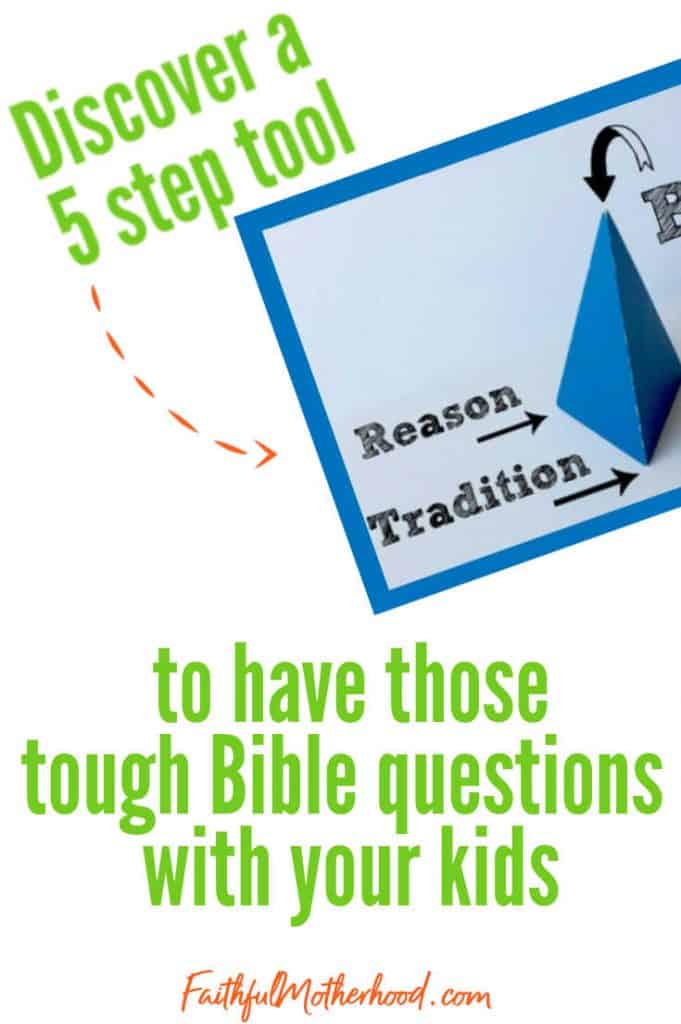
Using the Wesleyan Quadrilateral To Teach Biblical Discernment
Above is just one example of how you can use the Wesleyan Quadrangle for discussing controversial ideas with your children. Great care must undoubtedly be taken to evaluate your sources.
Another reason to be cautious is that this system might cause you to change your beliefs as well. Or, at least force you to understand them more deeply & be better equipped to share them with others!
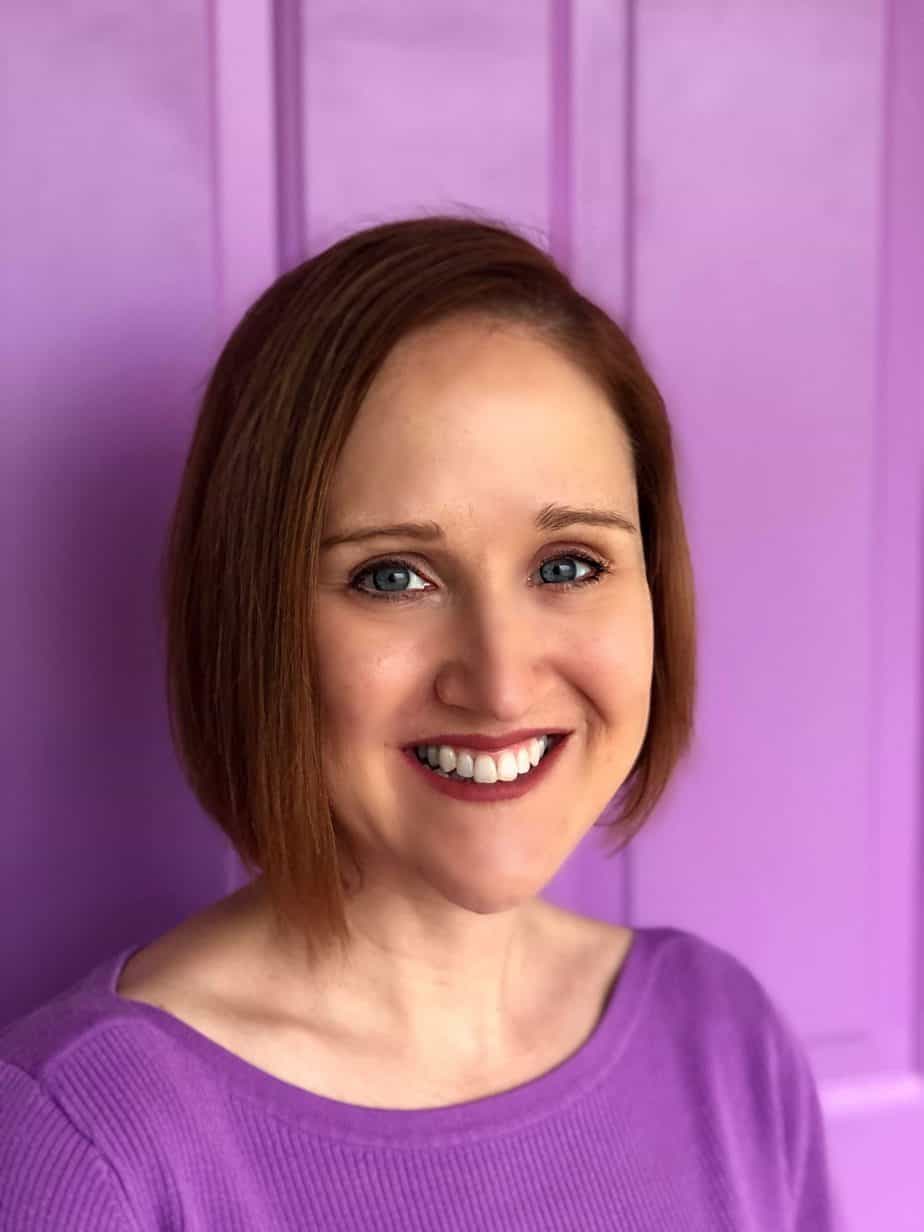
The voice behind FaithfulMotherhood.com is Jyn. She is a veteran homeschool mom of three. More than just a pastor’s wife, she holds a Master of Divinity degree and has served in church leadership for over 20 years. Her passion is equipping parents to live out their calling as the number one faith influencer for their children. She longs to see moms empowered by God’s Word and transferring that love to their children through daily Bible study and family devotions.



